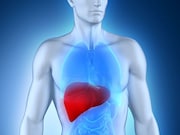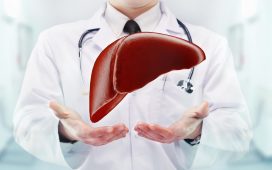Intervention linked to better short-term outcomes versus surgical procedures
WEDNESDAY, May 8, 2019 (HealthDay News) — For patients with hepatocellular carcinoma (HCC), percutaneous liver ablation interventions are associated with lower in-hospital mortality, length of stay (LOS), and hospitalization costs compared with surgical procedures, according to a study presented at the annual meeting of the American Roentgen Ray Society, held from May 5 to 10 in Honolulu.
Faezeh Sodagari, M.D., from the Yale University School of Medicine in New Haven, Connecticut, and colleagues identified all hospitalizations from 2002 to 2015 for patients with HCC from the National Inpatient Sample database. Rates and outcomes were compared for percutaneous liver ablation interventions and surgical procedures.
Data were included for 557,071 hospitalizations in patients with HCC, with percutaneous liver ablation interventions and surgical procedures performed in an estimated 2.4 and 8.0 percent, respectively. The researchers found that hospitalizations for HCC increased from 22,231 in 2002 to 54,427 in 2015, with a 4.4 percent median annual increase. Higher unadjusted in-hospital mortality rate (4.5 versus 1 percent), LOS (10.7 ± 6 versus 3.3 ± 2 days), and hospitalization costs ($51,656 versus $13,243) were seen for surgical procedures. Percutaneous liver ablation interventions correlated with lower in-hospital mortality (risk ratio, 0.22), higher routine discharge to home (risk ratio, 1.37), lower LOS (risk ratio, 0.33), and lower cost (risk ratio, 0.29) after adjustment for comorbidity score, year, and patient- and hospital-specific factors.
After adjustment for confounders, age >50, male sex, black and Hispanic race, public versus private insurance coverage, and nonteaching urban hospital setting significantly predicted treatment with percutaneous liver ablation interventions versus surgery.
Copyright © 2019 HealthDay. All rights reserved.








